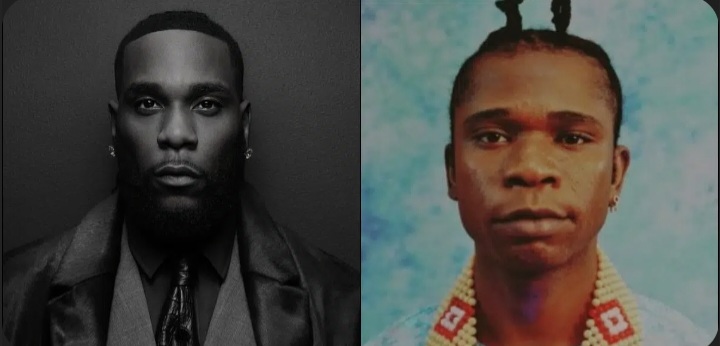Controversial artist Speed Darlington has made startling claims about Grammy-winning musician Burna Boy’s personal life choices. The contentious statements come in the wake of a previous confrontation that resulted in Speed Darlington’s arrest for defamatory comments against Burna Boy and his mother.
The controversy deepened when Speed Darlington, known for his provocative social media presence, released a video suggesting personal theories about Burna Boy’s stated choice not to have children. His speculative comments about the African Giant’s lifestyle choices have sparked intense backlash from fans and social media users, who view these allegations as baseless and potentially harmful.
This latest incident adds another chapter to the ongoing tension between the two artists, following Speed Darlington’s earlier detention for making unfounded allegations against Burna Boy and his mother. The situation highlights the increasingly complex relationship between social media, celebrity culture, and personal boundaries in Nigeria’s entertainment industry.
The social media response to Speed Darlington’s claims has been overwhelmingly negative, with many users criticizing his approach to gaining attention. @mylady_eve pointedly questioned Speed Darlington’s own status, asking, “Akpi you that is talking how many kids do you have??” while @Olivia_davids delivered a particularly sharp critique of his appearance and audacity to make such claims.
Some observers, like @miyaskigram, predicted a familiar pattern in this controversy, suggesting that Speed Darlington might resort to playing the victim when faced with consequences from Burna Boy. This cynicism reflects the public’s growing weariness with what many perceive as attention-seeking behavior in the entertainment industry.
The situation has also sparked broader discussions about responsibility in social media use and the impact of unfounded allegations on public figures. @i_am_the_chris678 suggested that Speed Darlington’s behavior might warrant professional intervention, stating, “Normally Akpi supposed Dey Rehabilitation center, una go think say he Dey funny until it enters another level.
This incident represents a larger trend in Nigerian entertainment, where social media has become a platform for both creative expression and personal attacks. The ease with which controversial statements can be made and circulated has led to increasing concerns about the responsibility of public figures in managing their online presence.
The controversy has also highlighted the challenges faced by successful artists like Burna Boy in maintaining their privacy while living in the public eye. The Grammy winner’s personal choices regarding family planning have become fodder for public speculation, raising questions about the boundaries between public interest and private matters.
The reaction from Burna Boy’s fan base has been particularly protective, with many defending their idol against what they see as unwarranted attacks on his personal life. The incident has strengthened the bond between the artist and his supporters, who view Speed Darlington’s comments as an attempt to tarnish the reputation of one of Africa’s most successful musical exports.
Industry observers note that this type of controversy can have lasting implications for both parties involved. While Speed Darlington’s provocative statements may generate temporary attention, they risk damaging his own credibility and professional relationships within the industry. Meanwhile, Burna Boy’s measured response (or lack thereof) to these provocations may serve to enhance his reputation for professionalism.
The situation also reflects the evolving nature of celebrity culture in Nigeria, where traditional boundaries between public and private life are increasingly blurred by social media. The incident has sparked important discussions about responsibility, respect, and the role of social media in shaping public discourse about celebrities’ personal lives.
As this controversy continues to unfold, it serves as a reminder of the complex dynamics at play in Nigeria’s entertainment industry, where personal choices, public perception, and social media influence intersect in increasingly complicated ways. The public’s response suggests a growing sophistication in how audiences consume and react to celebrity controversies, with many calling for more responsible behavior from public figures on social media platforms.
While Speed Darlington’s claims continue to generate discussion, the incident has ultimately highlighted the importance of maintaining respect and boundaries in public discourse about celebrities’ personal lives, even in an era of unprecedented social media access and expression.



